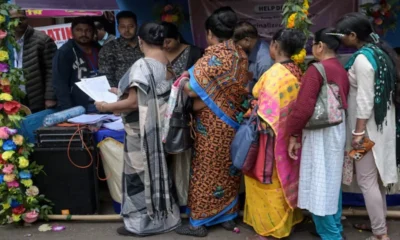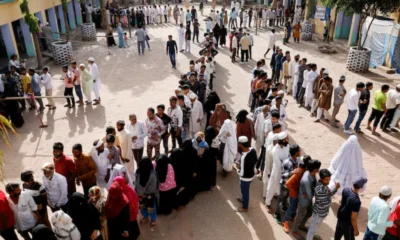Latest Politics News
Can hold Lok Sabha election along with polling for four state assemblies in December: EC

India News
Ajit Pawar’s son seeks detailed probe into Baramati plane crash
Jay Pawar has demanded a comprehensive probe and action against the aviation firm after the Baramati plane crash that killed Ajit Pawar and four others.
India News
PM Modi sends congratulatory letter to Tarique Rahman after swearing-in
Lok Sabha Speaker Om Birla handed over Prime Minister Narendra Modi’s congratulatory letter to Bangladesh Prime Minister Tarique Rahman following his swearing-in and extended an invitation to visit India.
India News
Navjot Kaur Sidhu says Rahul Gandhi disconnected from ground realities
Navjot Kaur Sidhu criticises Rahul Gandhi after exiting Congress, alleging corruption in the Punjab unit and predicting defeat in upcoming state elections.
-

 Latest world news21 hours ago
Latest world news21 hours agoTrump says tariffs will replace income tax, criticises Supreme Court setback in key address
-

 Latest world news21 hours ago
Latest world news21 hours agoTrump repeats claim of averting India-Pakistan nuclear war during Operation Sindoor
-

 Latest world news20 hours ago
Latest world news20 hours agoPM Modi to begin two-day Israel visit, defence and trade in focus
-

 India News20 hours ago
India News20 hours agoShashi Tharoor questions Centre over Kerala name change to Keralam
-

 India News12 hours ago
India News12 hours agoMK Stalin predicts frequent PM Modi visits to Tamil Nadu before assembly election
-

 Latest world news11 hours ago
Latest world news11 hours agoIndia eyes Rs 8,000 crore mid-air refuelling aircraft deal as PM Modi begins Israel visit













